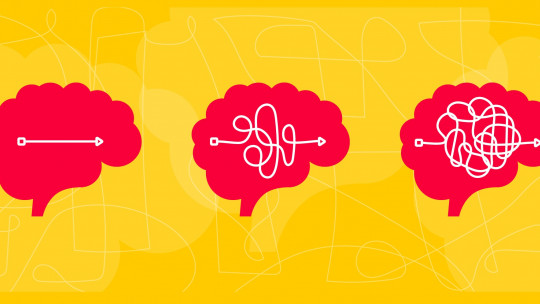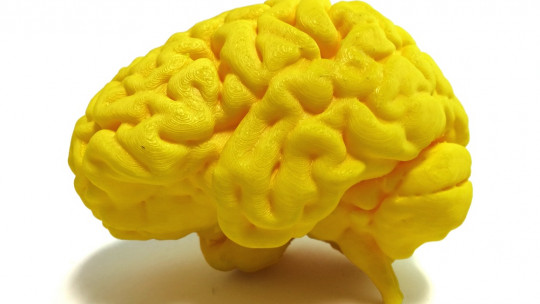
In the field of logic, Fallacies are arguments that seem valid but harbor a bias that completely nullifies their content
They are often used in debates and discussions, with or without awareness that it is being done. Both their identification and their refutation depend on the expertise and experience of the recipient.
In this article we will address the sniper fallacy, as it is one of the most common. It can occur especially in the context of future predictions or decision making.
What is the sniper fallacy?
The sniper fallacy, also known as the Texas Sharpshooter Fallacy, describes a reasoning that ignores any suggestive indication that an idea is wrong, to emphasize information that seems to support it. Sometimes reality is deformed for this, interpreting it in a disfigured way to approximate what was intended
In this way, almost all information can be susceptible to attempts at manipulation to adapt to particular ideas or theses, establishing forced coincidences. It is a cognitive bias associated with apophenia, which consists of the erroneous perception of logical or regular patterns where there is really only randomness (for example, a series of random numbers where a progressive or multiplicative order is inferred when this is not the case. ).
This fallacy implies a devaluation of all the discrepant information regarding the matter about which we wish to convince, as well as a magnification of the importance of the one that affirms it. An example could be found in the way star constellations are interpreted, since it involves drawing a succession of imaginary lines to link stars whose position is absolutely random, deliberately ignoring celestial bodies that could distort the desired figure.
The curious name of the fallacy is due to a metaphor about shooting accuracy It describes an idle man carrying out target practice from an elevated position against a barn on his property, eventually forming a network of holes without order or meaning. To reduce the mistake and be able to consider himself a great sniper, the intrepid man would later draw some targets where the bullet holes were found, simulating a deceptive skill with his weapon.
Five Examples of the Sniper Fallacy
In order to clarify the concept of the sniper fallacy, nothing better than the resource of some simple examples Through these examples we aim to illustrate what this bias is and how it is explained.
1. The fortune teller
Let’s imagine a fortune teller, wrapped in his aura of mystery and predicting from his pulpit a series of sinister predictions for the future. Given that he was a prolific prophet, throughout his life he produced thousands of texts in which he included copious information regarding the places and times in which all these tragic events would occur, leaving for later a legacy of intense fear and uncertainty.
His work was so extensive that it not only occupied dozens of dusty volumes in a dark and inhospitable library, but also dealt with all types of calamities in the most diverse places imaginable. He generated, therefore, information so abundant that there was room in it for practically anything. In this way, the passage of time allowed him to be correct in a percentage of his predictions, which could be explained without any problem by referring to the laws of probability.
However, given the fascination of his figure and the severity with which he used to point out his words, there were many who interpreted such successes as an irrefutable sign of his visionary capacity. What they did not notice, however, was the thousands of ill-advised volumes that remained forever among clouds of dust and mouse droppings.
2. A man looking for love
Once upon a time there was a man thirsty to find his better half, his other half He had searched for her in the most remote places, but every woman he could meet seemed inappropriate to him in some way. And he was a very demanding man, to the point that he began to think that there was no one anywhere in the world who could satisfy his romantic expectations. Therefore, he felt somewhat embarrassed and lacking in hope.
One afternoon, while walking through the city center, he accidentally came across an illuminated sign that read: “marriage agency.” She was surprised that she had never seen him before, because the dense layer of dust and cobwebs that covered him screamed loudly that he had been there for a long time, so he considered that this was a sign of destiny. He pressed the doorbell button and someone opened the rickety door without asking.
After a series of procedures, and after leaving a substantial amount of money there, he filled out a very brief form in which he inquired about his personal tastes and asked about his physical appearance. Size and weight, little more. She returned the papers and was promised that he would have news about a perfect match in a few days. A month passed, however, until a surprise call made his heart falter: they had found the perfect woman.
They were put in contact and they met at a central Italian restaurant. Apparently, according to the data available to the agency, he was someone with whom he agreed in all the expected parameters: he liked movies and walks on the beach at sunset, and he was a couple of centimeters shorter than him. His heart was pounding. What he did not know at that moment was that, after exchanging just a couple of sentences with that lady, he would discover that she liked him even less than the ones he had met by chance.
3. A premonitory dream
A woman woke up, startled, at three in the morning. She had dreamed of a certain Juan, or so she thought she heard from her, who was chasing her through the dark streets of an unknown city. Her voice exploded off the walls, echoing in the narrow space between them. It seemed that her legs did not respond to her, as if an elastic band was pulling her from her waist to the shadow that stalked her. “Juan, Juaaaan…” she whispered, getting louder and louder.
The thing is, he couldn’t sleep all night. She saw the sun rise, and for some reason she was terrified by the idea that this dream was a warning that something horrible was about to happen. He got up, called one of her best friends and told her that he needed to talk to her about what happened. Since she was an attentive girl, he responded that he would wait for her at the usual cafeteria at the usual time
After a few more hours of frolicking in the sheets, he decided to begin the grooming routine. She covered the dark circles under her eyes with powder makeup, untangled her hair, and got dressed without thinking too much about what she would wear. Her friend showed up on time, as was her habit, but was surprised to see that she was accompanied by someone she didn’t know. It was her new partner, a boy she met on a recent trip and whom they had talked about at another time.
It turned out that that boy was called Jaime. With “J”, just like the man in that dream. It was just at that moment when an unbearable chill passed through her entire body, and an icy sweat soaked her forehead: she concluded that it was a premonitory dream, and that perhaps her best friend could be in serious danger.
4. A clueless researcher
One morning, our clueless researcher woke up feeling miserable She had been thinking for a long time that he was not completely happy, and she longed to find a way to feel happy. He didn’t know where to start, so he ended up turning to science, which was what he was best at. In his first search he discovered the island of Okinawa, which was apparently the place where the happiest people lived.
He spent the whole morning reading about her. It was one of the regions in which the most centenarians were registered. A long and happy life: there couldn’t be anything better. Among all those pages on Asian anthropology, which constituted a collection of dozens of thoughtful investigations into the island customs of traditional Japan, one detail particularly caught his attention: tea. And it turns out that these people drank a lot of green tea, to the point that most of them drank infusions (made with the plant’s powder) absolutely every day.
Therefore, without thinking twice, he headed out to the nearest supermarket and loaded the shopping cart with boxes and boxes of green tea, until he left that place empty of stock. As he left, he asked one of the stockers if they still had a little more left in the warehouses. He became convinced that, at last, he had discovered the source of eternal happiness.
5. The lucky number
A young girl is going to face her practical driving test. She feels nervous, and for some strange reason she thinks about her lucky number: four.
She quickly rushes to the closet where she kept the board games, finds a ludo covered in dust, and grabs a green cup and a dice. In order to feel calmer, she decides to test whether such a long-awaited number appears in a reading, as it would be a sign that everything would be fine. So, she puts the die in the cube, shakes it well, and rolls.
The die rolls, does a caper and shows the number six She stares at him and decides that it’s not a valid roll, because he stood there a little strangely (or so she wanted to think), so she decides to try again. For this second time the number two appears. At last! She thinks… And six plus two is eight, but if that sum is divided by the total number of attempts she needed (two), it is definitely a four. Now yes: Let’s take on the world!
You have realized?
Up to this point, this article contains 1725 words. However, the word “dust” has been present in all the examples that have been presented (it has appeared five times), and although it represents only 0.003% of the text, it would be possible to think that it has special relevance.
A sniper’s fallacy would be to suspect that everything written here is actually about dust thereby ignoring the 1720 words that have nothing to do with him.








